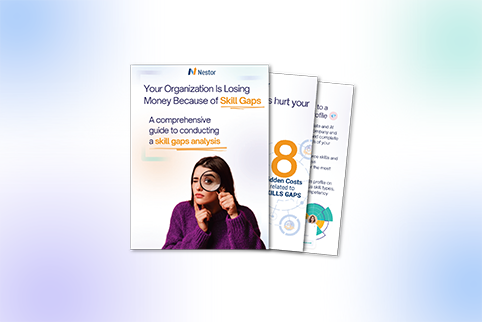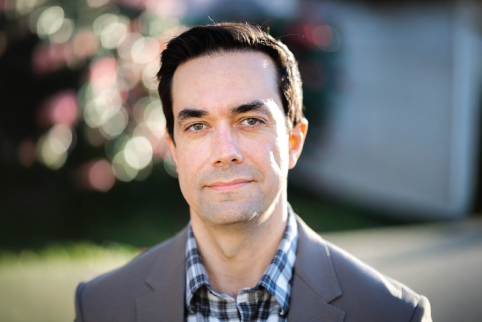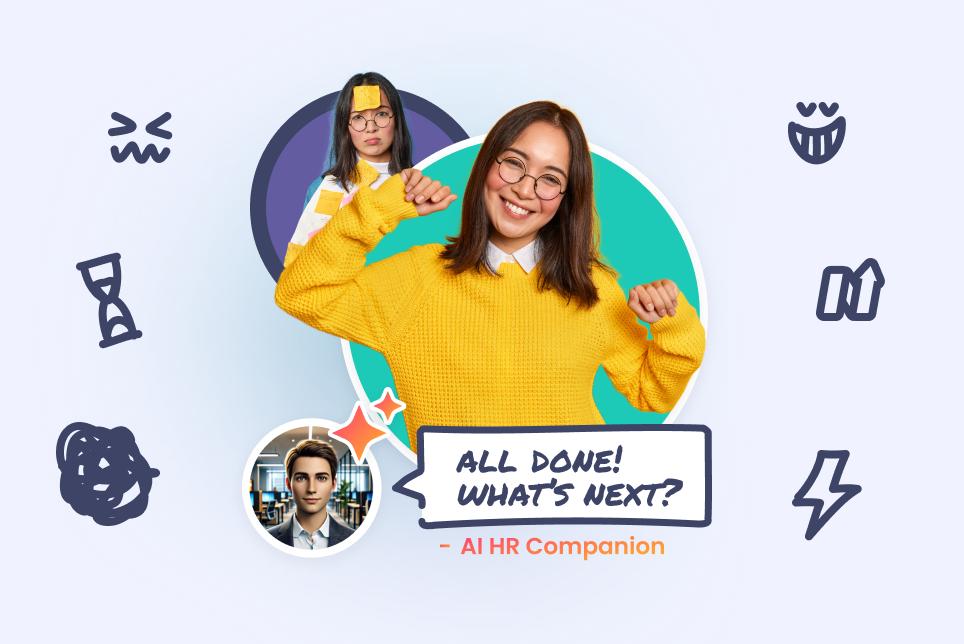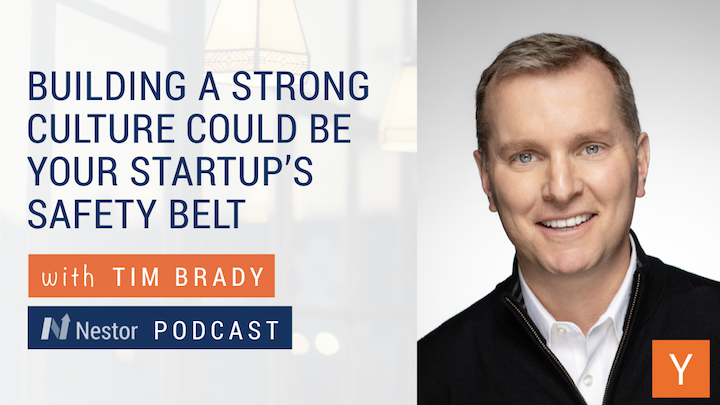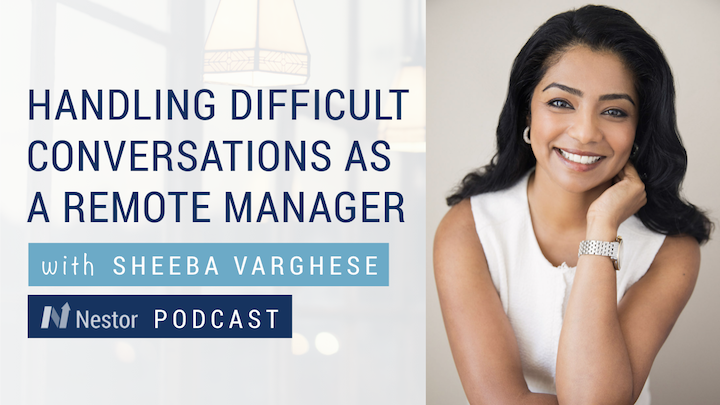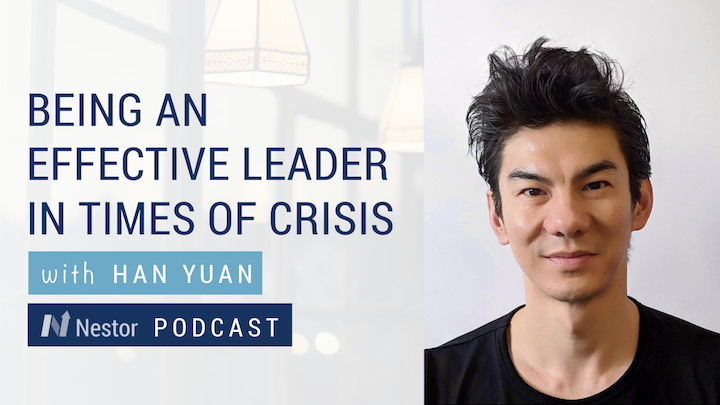Dieter Veldsman, a well-established figure in organizational psychology, joined us for a conversation on a very hot topic — HR skills and transformation in an AI-driven world.
Dieter is currently the Chief Scientist of HR and Organizational Development at AIHR (Academy to Innovate HR), and he has over 15 years of experience in the HR field, having worked for organizations like Mindset Management Inc., the University of Johannesburg, and Momentum Metropolitan Holdings Limited. As the Chief HR Scientist at the Academy to Innovate HR (AIHR), Dr. Veldsman leads thought leadership, subject matter expertise, and research efforts impacting a community of 100,000 HR professionals.
In recent years, Dieter’s work and expertise have also seen him receive two very important awards in the industry: Chief HR Officer of the Year and Practitioner of the Year. You can connect with Dieter on LinkedIn.
Dr. Dieter Veldsman has also an academic background, and he’s been actively involved in writing peer-reviewed articles, book chapters, and pieces for mainstream publications.
Raluca Apostol, the host of the podcast is the Chief Product Officer at Nestor and you can connect with her on LinkedIn or Twitter @RaluApostol.
Can you tell us more about your story and your background?
Dieter Veldsman: I’ve always been driven by an interest in human behavior and how human beings operate within a broader organization. That drew me to organizational psychology, initially. And then from there, I entered the profession in various capacities. First, in big corporate, I was in consulting later on, then shifted into my own business around employee engagement and driving HR platform solutions before returning to the big corporate environment, where eventually I became the group HR Officer for a multinational insurance business.
Where I find myself at the moment is at the Academy to Innovate HR, where I play the role of Chief Scientist. And that means three things:
- The first one is that I have the opportunity to do a lot of applied research with our clients across 100 countries about their biggest HR challenges and how we prepare them for work.
- It also means that we can take those insights back into our own organization around how we build the skill set of the HR professionals of the future.
- And then also the opportunity to engage with the industry to say: “Where should we be taking HR as a profession and what opportunities lie on the horizon?”
I’ve also had a bit of an academic career as well. I’ve always been interested in how we develop people and really around writing, so I have contributed to a number of books as well as chapters and articles.
Is HR becoming a strategic function and what are the needs to achieve this? What are the first steps HR leaders should take in that direction?
Dieter Veldsman: There have been some significant shifts in HR over the past couple of years. Things like the pandemic have had quite a significant impact on the positioning of HR within organizations, but it actually started before that. The shift in the movement towards HR as a strategic function started in the late 1990s when the question arose: “How can HR contribute to creating value for all the different stakeholders that the organization serves?”
Your question about where should HR start — I think, for me, one of the most important things that HR leaders need to do is go and invest in building trust capital. And when I talk about trust capital, it’s based on three very practical things:
- The first one is, do you have the competence to be able to engage with your business stakeholders? Because that builds trust. Can they trust you with the types of advice that you’ve given, and how you bring HR to the table to link to business challenges?
- The second component is, do they trust the intent of why you are there? Unfortunately, HR has a bit of a bad reputation over the years in a lot of instances. And we do need to do that work around repositioning the function and what it stands for.
- And lastly, are you there around a common purpose? Because HR is core to the business, but for strategic leaders really to be able to play that role, they have to form part in a different capacity of the C-suite going forward as well.
To make that practical, for me, it’s asking the question as an HR practitioner: “Who are my key stakeholders? What keeps them awake at night? And what is HR’s contribution going to be to move the business forward?” — And those are three critical questions that don’t matter at what level of HR you operate you should always be able to answer at the drop of a hat.
And I think that makes us a lot more strategic and aligned toward where the business needs to go and gives us the relevance to really be able to operate in the strategic environment. Because the biggest challenges we face are people challenges, today. And regardless of who you follow around the world, those are the things that we do need to help our organizations navigate.
According to your research, more than half of HR departments out there are not really coupled or aligned with business objectives. Could technology help? What’s your take on this?
Dieter Veldsman: For HR, it is definitely one of the more complicated functions — having to manage the needs of employees, leaders, and shareholders, as well as societal expectations to keep the organizations accountable for the way they operate. Any HR professional needs to be able to seamlessly navigate the requirements and the needs of these different stakeholders.
To give some context to the research, the question that we asked there was: “What is the strategic impact and value and relevance that HR holds within a lot of organizations?” And, unfortunately, there is a lot of work still to be done there in that space.
Very often the biggest challenge we find there is the translation of HR priorities aligned toward the business requirements. So, what that means is being able to say: “This is what the business is trying to do, how can HR contribute in a transparent manner and get people to understand and be on the same page with regard to that?”
To speak about technology, I think technology is going to play a critical role. However, technology on its own is not going to solve the problem. There are a couple of things that we definitely need to think about if HR is really going to become and remain a strategic partner at the executive level:
- And the first one is the question on strategy: “Are we aligned with where the business is going? And do we know what we contribute as a function?”
- The second one is structure: “Are we set up in the right way as an HR organization to be able to support the business and the chosen business model, and in the way that it operates?”
- The third one, which we’ll dive into a bit later, is the skill set: “Do we actually have access to the skills within HR to be able to make it work? As well as are we unlocking the skills potential in the rest of the organization?” Systems of work, that relate toward — “Do we have the processes, the technology, the data, and the governance in place in order to be able to shift and move the function forward?”
We’ve spoken about stakeholders as another critical aspect and pulling that all together is an HR leadership team that can inspire and motivate and really create the runway for the HR function to have a strategic impact.
So, to answer the question, I think technology is really important, but not in isolation. It’s not going to be a silver bullet. However, I think it is going to achieve a couple of things around the accessibility and the reach that HR has — because, unfortunately, a lot of people, still hold the perception of HR that it’s a hire-fire-“I’m in trouble” function due to the fact that they don’t engage with HR in any other types of capacity. And I think that’s where the real opportunity lies for us to do things differently.
Considering the increasing influence of AI in HR, how do you perceive the role of HR professionals transforming? Does it require gaining or acquiring new skills or upskilling the current ones?
Dieter Veldsman: I definitely think generative AI has been a bit of a game changer within the HR space. I do think that we are only at the beginning of unlocking its potential. And yes, there are still a lot of things that we do need to solve. However, we have seen major adoption of new AI-based technologies within HR, not only generative AI, but even going further back when we start thinking about things like applicant tracking systems and the application and things like learning and development.
I think there are three things that we need to realize and understand about what is changing and what the impact of AI is going to be on HR. And the first one is that the workforce is actually starting to change. I think that AI will become much more of a companion in the workforce and we need to rethink what work design is going to look like. HR has to play a role there firstly to manage the fear that a lot of the workforce holds, as well as to guide the organization around ethical adoption and responsible adoption of AI.
I think the second one is the actual work of HR itself is also going to change. You know, we’ve always been talking about how can we get better at — not only through automation, but through the use of technologies — really making HR accessible, to scale the impact that we have and really drive the promise that we make to business around leveraging the human capital potential in the organization.
Now, in my personal view, I don’t think we’ve ever had the technologies that have been able to do that. I think that has changed now because we’re no longer talking only about efficiency through automation. We’re talking about intelligent technologies within AI that can actually act as a companion to the HR professional, but that also brings fear.
My third point is around skill set. The skill set will have to change especially in the context of questions like “Is AI going to take my job?” You know, as an HR professional, it’s definitely going to change your job, and it’s going to take some of the activities within your job as well, but it will also unlock some new opportunities that we do need to explore.
However, that’s a new skill set. It is around how we augment through AI, the work of HR, and the skill set to utilize and leverage these technologies to their full potential. So, I think that those are some of the shifts that we’re starting to see, but it definitely talks about a change in skill set.
What would be some examples we should look into going forward? As HR professionals, what is the skill set we need to develop in this world of cutting-edge tech and intelligent algorithms?
Dieter Veldsman: I think we look at a T-shaped HR professional for the future and it’s based on five core competencies that all HR professionals need to have. And, depending on your role and context, you need to have them in different amounts and they take on different priorities.
The first one is business acumen. I know we’ve been talking about business acumen forever, but what business acumen means for us now is that connection of what’s happening in the markets to how it influences your organization and how HR then plays a role within the organization of crafting what the path going forward is going to look like.
The second component is really around data literacy. It doesn’t mean that all HR professionals need to be data scientists, but if we really want to drive evidence-based HR, there has to be an understanding of how we can leverage data to inform HR solutions and HR products and tell stories with data to drive the right business decisions going forward.
Particularly relevant to AI is what we call digital agility. And digital agility is way less about the toolset and it’s a lot more about the mindset within which you lead each technology. “Do we experiment with technology? How open are we towards adopting new technologies in the way we work?”
The fourth one, what we’ve always been good at in HR, is people advocacy. So, “How can we create cultures of well-being that can thrive in the future?” And that also leads to productive, sustainable organizations.
The last one is execution excellence, which to us is “how does the HR professional show up within the organization?” And I really think the tenacity of the HR professional to guide organizations in this time of disruption and in this time of change through skill sets like:
- How resilient are you?
- And how do you build resilience in the organization?
- How are you making sure that you’ve got the confidence to apply your skill sets, building the networks and the relationships that you require in order to be successful as an HR practitioner?
- How do you think analytically, think strategically, and become a master problem solver who can bring new solutions to the table as organizations start to change?
So, those five things I think are really important, but it starts with the HR professional also understanding “how do I gear myself for what is coming in this particular environment?” And these are some of the skill sets that we find are going to be very applicable in the future.
Where should HR start? How can they approach integrating AI technology into their operations? How can they implement effective solutions for things like performance or skills management?
Dieter Veldsman: I think there are a couple of things you can do. The first one is to ask the question “What do you want to achieve through the utilization of AI?” Because I think just utilizing AI for AI’s sake is also not a good idea. So, be very clear just on the purpose of where we are going to apply AI and what the benefits are that we are trying to leverage.
I think the second one is to be very transparent and open about the potential risks the utilization of AI does pose. And that leads toward the fact that you need different parties around the table that you can sit with that bring different knowledge of things like data privacy, technology, governance, risk, et cetera, that helps you make informed decisions about how you are going to adopt and roll out AI.
I think there has to be a very strong change process, especially around transparency pertaining to the utilization of AI. And then start small, with small little pilots, see how it behaves, and then scale that over time once you’ve gained some particular confidence.
Something I would also encourage is to go and see what other people have done because there’s been some great work done in the industry already and what you can learn from that. We see high adoption of generative AI in employee records management. We see high adoption in learning and development, high adoption, especially in recruitment and hiring. I think some fantastic things are being done in that particular space as well and I think this one is close to the career management skills space as well, in terms of really driving internal mobility and career management within organizations.
So, I think there are a lot of really good use cases to go and learn from. You have to be open to experiment, but experiment in a responsible way, bringing your stakeholders and the rest of the organization along, and make sure that you always know how the AI is learning and where it’s getting its data from. That’s kind of the first fundamental thing to be aware of. And then put controls in place, so that you can see how it behaves and how it grows over time.
So, don’t fear it, play with it, but play with it in a very responsible manner and make sure that you’re informed about what others are also doing so you can learn from the broader environment.
A huge concern when it comes to letting AI play and learn from our data is related to privacy and ethics. How should HR communicate policies and principles related to these things?
Dieter Veldsman: I think it’s a balance, right? A balance between what is the potential for harm through the utilization of AI when things go wrong. On the other side also then balancing that with the potential for impact and you know seeing what are the acceptable risks that we are able to take and being transparent about those.
And for me, there are a couple of questions that as an HR professional you should always be asking about the ethics of any AI technology that you’re utilizing and the first one is, “Is it valid and reliable? So, is it actually doing what it is supposed to do? And is it doing it consistently over time?” And I think that’s quite an important thing to monitor how AI also changes over time because all good things start with good intent, but it goes wrong further down the line — so, having that particular oversight.
I’ve already mentioned the second question “What is the potential for harm around your AI use case?” Now it’s very different when AI recommends the wrong learning program to somebody in your organization versus influencing a hiring decision that results in the fact that somebody does not get a job and influences their livelihood. So, what is the potential for harm and what are the risks and the biases, et cetera, that we need to take in place applicable to that particular use case?
The third one is about security. So, “how secure are the technologies we are utilizing? How safe is it from things like cyber attacks, et cetera?” And with that also to sort out some of the legalities pertaining to things like intellectual property. We’ve seen a couple of really interesting court cases coming about at the moment around the utilization of public or what people perceive to be public domain information.
Transparency, “how transparent is it in terms of also the user on the other side, are they aware that they are dealing with AI?” And I think that’s really interesting and there’s some interesting experiments coming out of places like Cambridge, at the moment, around AI-based coaching and how people prefer to deal with a human being or to deal with an AI system. It depends a lot on the positioning and the transparency within which we position the solution to those individuals.
And then the last one for me is, “Is it fair? Can we actually control for bias as part of this particular process?” So, you know, it’s a fine balance that we need to walk, but what I do want to say is that there are really good risk frameworks and guidelines out there. And as long as we keep ourselves honest about some of these questions that I’ve mentioned, I think we can make informed decisions around the responsible utilization of artificial intelligence.
We also need to educate our stakeholders about that too. Just… move some of the misperceptions that are currently in the public domain out of the way. And I blame public media a little bit for this. There are a lot of misconceptions about what Gen-AI is, what it is going to do, and what it’s not going to do. And a really good question is, “What is this not going to achieve and how is that going to influence the decisions we make about AI adoption as well?”
So, Raluca, in short, I think there’s a massive opportunity, but we have to go into it with our eyes open. And with these questions kind of as a guiding light, I think that’s very useful.
How can HR pitch the adoption of AI to stakeholders? And how can we prepare for adopting this technology, even if it’s only at a POC or small-scale level?
Dieter Veldsman: I think the first piece in the education of stakeholders is to make it relevant to what they are already talking about. I think it’s not that you’re going to be selling AI into the organization. You need to be selling a solution that is going to provide real business value. So what do I mean by that?
It’s not really that attractive to a business stakeholder when you come as HR and say, “We want to implement an AI system because it’s going to improve the efficiency of the back office HR function. And it’s really going to manage our workload in a fantastic way.”
That’s not really that attractive for a business stakeholder to engage with. However, showcasing to say, “If we are able to implement AI technologies that do the following, the business impact is going to be, you know, we will be focusing on different types of talent approaches, we will be able to source better quality candidates” — and linking that towards a particular business outcome, I think changes the conversation quite a bit.
The second piece, for me, is to have a responsible roadmap, so people can see how this is going to happen. Because… I think the misconception very often is that these things happen over time and some of the best technologies incrementally have to increase their impact over time. And we are terrible at that in HR. We typically implement something and we stick to the MVP phase forever and we don’t really optimize the utilization of tech. So, have a very clear roadmap that helps you manage the expectations of the business stakeholders.
And the third point there is to celebrate small successes and wins because I think that’s where the battle is going to be won. It’s not about the big things that we achieve over time. It’s about the small little battles and going back to the business and saying, “Through the adoption of… this is actually what’s improved this quarter. This is what’s now different than what it was in the past. Compared to where we were last year this time, this is where we are today.”
And that’s where data is going to be a really, really important source of driving a different type of argument and a different type of narrative that over time will help people engage with the solution even more.
So, I think from an HR point of view, think about this as you are the public relations officer for the utilization of AI in your own organization. How are you going to change the perceptions, bring people along, make sure that they want this in the longer term, and show them the benefit? Those are the things that we need to get right as HR if we’re really going to optimize and grasp the opportunities that this offers.
Are there any future roles that will emerge in the HR area? And do you see them showing up soon?
Dieter Veldsman: Definitely. I think the HR operating model and the HR roles of the future will look very different than what it is today because the nature of the work is going to be very different.
We’re already starting to see, if I go a couple of years back when you spoke about employee experience, it wasn’t something that people actually grasped was happening in the HR function. Whereas today you’ve got, you know, heads of employee experience. You’ve got people specifically looking at how we optimize those types of functions.
Going forward and as a result of AI — as well as other changes, it’s not only going to be driven by AI — I think we will start getting new roles in HR that start to emerge. And, you know, this is now me gazing into a crystal ball, but I think things that might be relevant are, you know, like HR product managers. How do we start managing HR as a product solution in organizations and optimizing that over time?
I think we’ll have HR architects that talk about what HR will look like and how it integrates with business in a very, very different way. I think BPs will change to have much more of an account management customer success type of mentality around connecting their business to the different HR products that are offered across the organization at the right time.
And really a new breed of HR technology roles that will also come to the fore. Maybe an important point is, I think, for HR really to grasp the opportunity, we also have to grasp and take ownership of how our technology architecture and roadmap is going to unfold. And in a lot of organizations that doesn’t actually sit with HR.
And I think that’s something that has to change and we need new roles with new skill sets to bring that into the room. And I think that’s going to be interesting to see how we transition people into those opportunities.
With the HR function becoming more strategic, what would be a few KPIs HR professionals should focus on to drive business impact and align with the larger organizational goals?
Dieter Veldsman: I think my answer comes with a little bit of a caveat around saying that I think KPIs should be crafted in the context of the business. So, it will be very different for businesses depending on what the biggest challenges are. If it’s growth, that will lead toward a certain set of KPIs for HR, if it’s cost-cutting, it will be something different, if it’s efficiency, et cetera.
Having said that though, I think there are three really important metrics that any HR professional needs to be very, very aware of if they’re going to play that strategic role.
The first one for me is what is the caliber of leadership that you are building? So, are you actually confident that the leadership pool that you’ve got in place in a value-driven way is going to achieve the organizational objectives and strategies?
The second one, what is the health of the talent pipeline? Because that talks about the sustainability of the business going forward. So, how confident are you that you’ve got access to the right skills today and tomorrow aligned with the workforce plan in the organization?
And then lastly, really a metric around the culture in the organization. So, what does engagement look like? What does employee experience look like? And what does well-being look like in the organization? The climate piece there that we need to be very, very aware of is whether the organization has the energy to move and perform and to execute.
So, there are various other operational and return on investment types of metrics, which I think are also important. But for me, I always ask myself these three questions: Do we have the leaders today? Do we have the talent for tomorrow? And do people actually have the energy that they want to work here and they want to execute and they feel part of what we are trying to drive within the future? And for me, those are the important ones to keep in mind.
For more information on the state of HR, read also Dieter Veldsman’s paperwork on AIHR:



